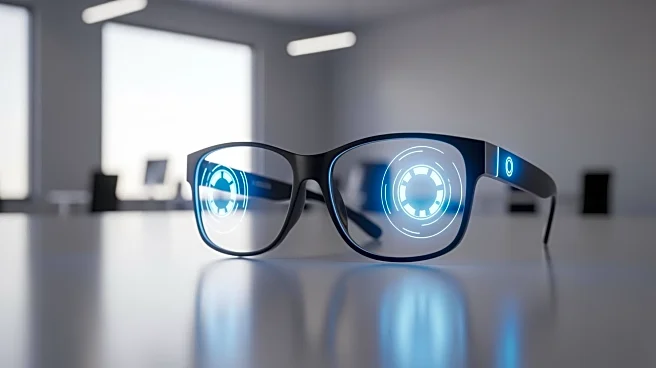What's Happening?
During a recent Q2 earnings call, Mark Zuckerberg, CEO of Meta Platforms, Inc., made a statement that individuals without AI glasses could be at a 'pretty significant cognitive disadvantage.' This comment
has sparked widespread debate about the implications of wearable AI technology on workplace dynamics and social inequality. The call highlighted Meta's Reality Labs reporting a substantial operating loss of $4.53 billion, while Ray-Ban Meta smart glasses saw their revenue triple year-over-year, indicating strong consumer demand. The remark has shifted public discourse from product excitement to concerns about potential social divides and workplace pressures related to AI eyewear adoption.
Why It's Important?
The statement by Zuckerberg underscores the growing influence of AI technology in everyday life and its potential to create disparities in cognitive capabilities among individuals. As wearable AI becomes more prevalent, there are concerns about privacy, workplace expectations, and whether access to such technology will become a job requirement or advantage. Investors have shown confidence in the demand for smart glasses, as evidenced by market gains for Ray-Ban maker EssilorLuxottica. However, privacy advocates warn of the normalization of constant visual AI, which could lead to new workplace policies and societal norms, raising questions about fairness and surveillance.
What's Next?
The ongoing debate is likely to lead to discussions about policy and workplace regulations concerning AI eyewear. Companies may face pressure to establish clear adoption rules, while insurers and HR teams might need to reassess risk and equity considerations. As adoption of AI glasses grows, there will be increased calls for public rules to ensure equitable access and address who benefits, who pays, and who might be left behind in this technological shift.
Beyond the Headlines
The ethical implications of AI eyewear extend beyond immediate workplace concerns. Long-term, this technology could redefine social interactions and personal privacy, as individuals navigate environments where cognitive enhancement is unevenly distributed. The normalization of AI glasses could also influence cultural perceptions of intelligence and capability, potentially leading to new forms of inequality.









